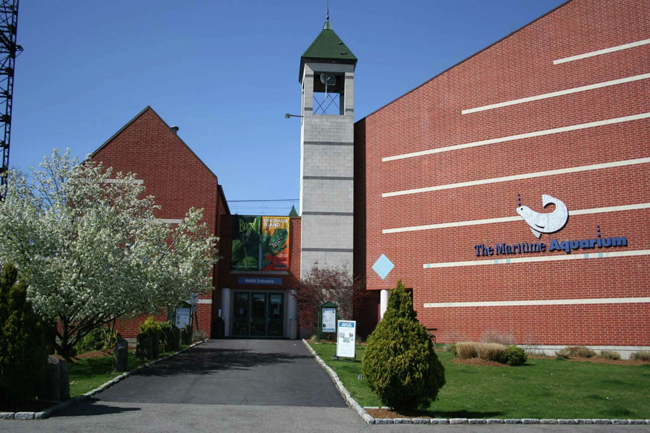
The Maritime Aquarium in Norwalk will lead a research project into salt marshes of Long Island Sound. Credit: Maritime Aquarium
— Published by the Connecticut Post
Norwalk, CT, April 2, 2023 - Long Island Sound's water quality, salt marsh and public beach characteristics will be examined by marine and social scientists in nine research projects.
All of the projects were awarded funding by the Connecticut and New York Sea Grant programs and the federal Environmental Protection Agency’s Long Island Sound Study Research Grant Program.
These new projects, which seek information that can be used to improve the estuary for humans and wildlife, are supported by $4.2 million in federal funds. That will be supplemented with matching funds of $2.1 million, for a total research package of more than $6.3 million.
The projects will be conducted over two years beginning this spring. The results will build on the substantial body of research funded through the LISS Research Grant Program administered by CTSG and NYSG since 2008.
One of the projects will be on “Assessing the impacts of warming and planting strategy on the resilience of restored salt marshes to improve restoration efficacy.” It is one of the CTSG-administered projects.
It will be led by Sarah Crosby of The Maritime Aquarium at Norwalk, along with A. Randall Hughes and Nicole Kollars of Northeastern University, Nicole Spiller of Harbor Watch and Earthplace, and LaTina Steele at Sacred Heart University.
By enclosing sections of salt marshes within open chambers to increase interior temperatures, the researchers will assess the expected effects of warmer temperatures associated with climate change. The work will include plantings of Southern-sourced marsh grass strains to determine impacts on future resilience.
“The continued partnership between Sea Grant programs and EPA will support a nice diversity of innovative and ambitious research projects to benefit both people and ecosystems of Long Island Sound, for mutual benefits—a wise investment, in my opinion," said Sylvain De Guise, director of CTSG.
David W. Cash, EPA New England regional administrator, the Long Island Sound estuary is an "essential ecosystem that supports communities, economies, and habitats across the region."
"I’m pleased to say these diverse and innovative Sea Grant projects include a focus on improving the Sound’s water quality, mitigating the effects of climate change, and helping local communities receive more equitable access to the Sound,” he said.
More Info: New York Sea Grant
New York Sea Grant (NYSG), a cooperative program of Cornell University
and the State University of New York (SUNY), is one of 34 university-based
programs under the National Oceanic and Atmospheric Administration’s
National Sea Grant College Program.
Since 1971, NYSG has represented a statewide network of integrated
research, education and extension services promoting coastal community
economic vitality, environmental sustainability and citizen awareness
and understanding about the State’s marine and Great Lakes resources.
Through NYSG’s efforts, the combined talents of university scientists
and extension specialists help develop and transfer science-based
information to many coastal user groups—businesses and industries,
federal, state and local government decision-makers and agency managers,
educators, the media and the interested public.
The program maintains Great Lakes offices at Cornell University, SUNY
Buffalo, SUNY Oswego and the Wayne County Cooperative Extension office
in Newark. In the State's marine waters, NYSG has offices at Stony Brook
University in Long Island, Brooklyn College and Cornell Cooperative
Extension in NYC and Kingston in the Hudson Valley.
For updates on Sea Grant activities: www.nyseagrant.org has RSS, Facebook, Twitter, Instagram, and YouTube links. NYSG offers a free e-list sign up via www.nyseagrant.org/nycoastlines for its flagship publication, NY Coastlines/Currents, which is published quarterly.